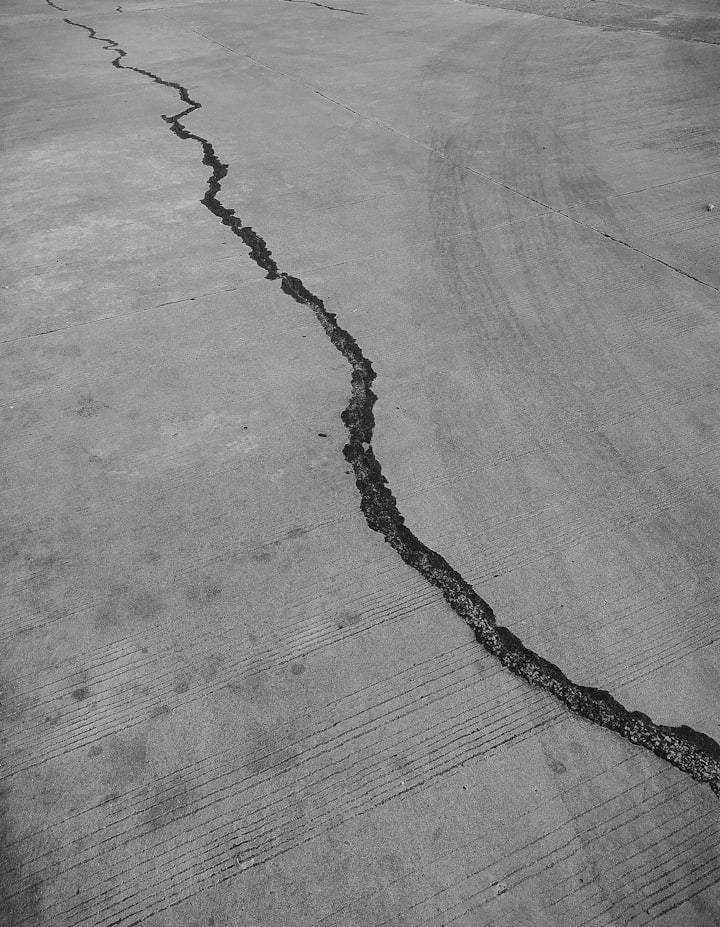
An earthquake is a natural phenomenon that occurs when tectonic plates in the Earth's crust shift and release energy, causing the ground to shake and vibrate. Earthquakes can range in intensity from mild tremors to severe and destructive quakes that can cause widespread damage and loss of life.
The severity of an earthquake is measured using the Richter scale, which assigns a numerical value to the intensity of the quake based on the amount of energy released. A small, barely noticeable earthquake might measure at around 2.0 on the Richter scale, while a major earthquake could measure 8.0 or higher.
Earthquakes can occur anywhere in the world, but are most common in areas where tectonic plates meet, such as along the Pacific Ring of Fire or the Mediterranean. These areas are more prone to earthquakes because the plates are constantly shifting and grinding against each other.
Preparing for an earthquake is important, especially if you live in an area that is prone to seismic activity. This can include securing heavy objects in your home, having an emergency kit ready, and knowing what to do during and after an earthquake.
The magnitude of an earthquake is a measure of its size or strength. It is typically determined using the Richter scale, which assigns a numerical value based on the amount of energy released during the quake. The scale ranges from 1.0 to 10.0 or higher, with each increment representing a tenfold increase in energy.
Precautions during an earthquake can help minimize the risk of injury or damage to property. Some important precautions include:
Drop, cover, and hold on: When an earthquake occurs, it's important to drop to the ground, take cover under a sturdy piece of furniture, and hold on until the shaking stops.
Stay away from windows: Broken glass from windows can cause serious injury during an earthquake, so it's important to stay away from them during the quake.
Stay indoors: Unless there is an immediate threat to your safety, it's generally safest to stay indoors during an earthquake. Going outside can expose you to falling debris or other hazards.
Turn off gas and electricity: If you smell gas or notice any electrical sparks, turn off the gas and electricity to your home and evacuate immediately.
Have an emergency kit: It's important to have an emergency kit on hand in case of an earthquake. This should include items such as food, water, first aid supplies, and a flashlight.
In summary, the magnitude of an earthquake is a measure of its strength and precautions during an earthquake can help minimize the risk of injury or damage to property. It's important to know what to do during an earthquake and to have an emergency plan in place.
Certainly! An earthquake is a natural disaster that occurs when tectonic plates in the Earth's crust shift and release energy, causing the ground to shake and vibrate. The strength or size of an earthquake is measured using the Richter scale, which assigns a numerical value based on the amount of energy released during the quake. The higher the number on the Richter scale, the more severe the earthquake.
During an earthquake, there are several precautions that can be taken to minimize the risk of injury or damage to property. These include dropping to the ground, taking cover under a sturdy piece of furniture, and holding on until the shaking stops. It's also important to stay away from windows, stay indoors unless there is an immediate threat to safety, and turn off gas and electricity if there is a risk of a gas leak or electrical fire.
Having an emergency kit on hand is also crucial in case of an earthquake. This should include items such as food, water, first aid supplies, and a flashlight. Being prepared and knowing what to do during an earthquake can help keep you and your loved ones safe.
About the Creator
Karthik Raj
I am a cool guy






Comments
There are no comments for this story
Be the first to respond and start the conversation.